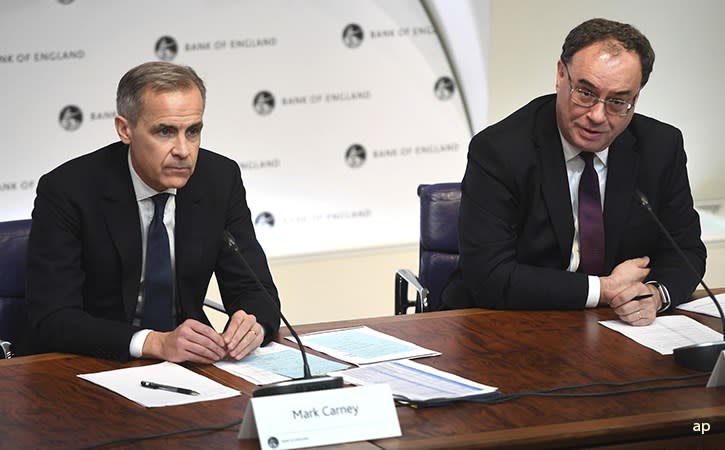Bank of England Slashes Interest Rates

The Bank of England has cut interest rates from 0.75% to 0.25%, in an attempt to reassure the stock market and support the economy as panic about covid-19 continues to spread.
Just days before he is due to leave the post of governor of the Bank of England, Mark Carney has cut the UK’s central rate of interest by 50 basis points to 0.25%. The Monetary Policy Committee (MPC) voted unanimously to reduce the rate, it confirmed.
The Bank has also announced support for businesses, including relaxing bank credit rules and a new term funding scheme. It is hoped the measures will help small companies as they cope with slower sales and potential shutdowns following the coronavirus outbreak. Individuals, meanwhile, will feel the effects through a reprieve in their mortgage and borrowing rates. On the flipside, savers will inevitably see a drop in already low savings rates - but Carney said that people's jobs and health must take priority at this time.
In a joint press conference with the incoming governor, Andrew Bailey, Carney said that while people will focus on interest rates, this is "big, big package" to help boost the UK economy. He said the UK financial system is in much better shape to handle this crisis than around the time of the 2008/2009 crash: "We have the resilience in the system that has been built up over the decade." Carney said it is still too early to say how long the disruption will last, but is confident it will be temporary and that a vaccine will be found.
However, many commentators say the cut is more important symbolically and is unlikely to be particularly effective in mitigating the disruption from the coronavirus. Rupert Thompson, chief investment officer at Kingswood, said: ”Importantly, however, it is being accompanied by measures to relax capital rules for the banks so they can provide more support for struggling businesses.”
Budget Day Measures
The Bank's announcement comes just hours before the Government is due to reveal its first Budget under Prime Minister Boris Johnson and new chancellor Rishi Sunak. Carney said the Bank's move is a co-ordinated action with the Treasury, and that more measures will be announced today.
Stuart Clark, portfolio manager at Quilter Investors, said: “With Mark Carney almost out of the door, he has given the market a leaving present of an interest rate cut as the threat of the coronavirus looms large. The rate cut is hugely significant given the Bank has chosen to do it on Budget day. Investors will be asking: what do they know that we don’t, and will it be a co-ordinated, and potentially political, effort with fiscal measures due to be announced later.”
Thompson expects today’s Budget will relax controls on day-to-day government spending. Luke Bartholomew, investment strategist at Aberdeen Standard Investments added: “It is important the government announces an aggressive package of fiscal support in the Budget today. This should include a significant increase in resources for the health service and measures to support the incomes and cash flows of businesses.”
Of today’s rate cut, the Bank said its role is to “help UK businesses and households manage through an economic shock that could prove sharp and large, but should be temporary”. In a statement it said: “Although the magnitude of the economic shock from Covid-19 is highly uncertain, activity is likely to weaken materially in the United Kingdom over the cover months.”
Indeed, the FTSE 100 suffered its worst day on Monday since 2008, falling 7.7% to 5,965. On Wednesday it opened 1.3% higher, passing the 6,000-mark as it responded to the Bank’s intervention.

 Yahoo Finance
Yahoo Finance 